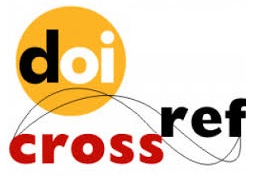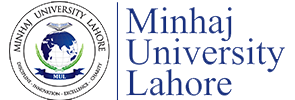Effect of Departmental Challenges Faced by the Teachers on their Performance and Attitude at the Secondary Level
DOI:
https://doi.org/10.58932/MULI0004Keywords:
Departmental challenges, secondary school teachers, secondary levelAbstract
Pakistan is a country where teachers have to face many challenges other than their fundamental teaching task. The teachers of public sector schools have to fulfill many of the tasks assigned by the School Education Department other than teaching e.g., BISE, election, anti-dengue, enrolment, BISP duties, etc. This research aimed to investigate the effect of departmental challenges faced by teachers on their performance and attitude at the secondary school level. It was descriptive in nature and quantitative method was applied for data analysis. Male and female secondary school teachers of public sector schools of district Faisalabad were the population of this study. Two out of six tehsils were randomly selected for the population. Three hundred secondary school teachers (150 male, 150 female) were selected using a simple random sampling technique. A self-developed five-point Likert-type scale duly validated by experts was administered as a research instrument for data collection. ANOVA and independent samples t-test were applied for the data analysis. The finding revealed that there was a significant effect of departmental challenges on teachers’ performance and attitude. It is recommended that the School Education Department (SED) may provide an appropriate number of supporting staff to the educational managers at the district and tehsil levels so that the district and tehsil level authorities let the teachers free from unnecessary tasks.
References
Ahmad, I., Ali, A., Khan, I., & Khan, F. A. (2014). Critical analysis of the problems of education in Pakistan: Possible solutions. International Journal of Evaluation and Research in Education, 3(2), 79-84.
Alam, S. A. (2020). Great saying اِنَّمَا بُعِثتُ مُعَلِمًاand status of teachers in Muslim countries: A comparative study of past and present for future improvement. Rahat-ul-Quloob, 120-129.
Akbar, A., Ahmad, S., Nadim, M., Bhatti, M. A. A., & Khan, H. (2024). Affect of Hrm on Employee Motivation Towards Green Creativity and Initiatives. Center for Management Science Research, 2(3), 197-216.
Chang, M.-L., & Davis, H. A. (2009). Understanding the role of teacher appraisals in shaping the dynamics of their relationships with students: Deconstructing teachers’ judgments of disruptive behavior/students. Advances in Teacher Emotion Research: The Impact on Teachers’ Lives, 1(2), 95-127.
Chopra, N. (2012). A study of early childhood education programmes in Delhi, India. International Journal of Early Years Education, 20(2), 159-174.
Cremers, S. L., Lora, A. N., & Ferrufino-Ponce, Z. K. (2005). Global rating assessment of skills in intraocular surgery (GRASIS). Ophthalmology, 112(10), 1655-1660.
Cristina-Corina, B., & Valerica, A. (2012). Teachers’ perceptions and attitudes towards professional activity. Procedia-Social and Behavioral Sciences, 51(2), 167-171.
Fernet, C., Trépanier, S.-G., Austin, S., & Levesque-Côté, J. (2016). Committed, inspiring, and healthy teachers: How do school environment and motivational factors facilitate optimal functioning at career start? Teaching and Teacher Education, 59(3), 481-491.
Anjum, G., & Bhatti, M. A. A. Discover the Impact of Internet Usage on the Academic Performance of Library and Information Science Students. Indonesian Journal of Multidiciplinary Research, 4(2), 377-388.
Jaafar, N., Muhamad, N., Tamuri, A. H., Ahmad, A., Hussin, N., Daud, M., & Ishak, M. (2012). The significant correlation between self-efficacy and the role of Islamic education teachers as a society change agent. Mediterranean Journal of Social Sciences, 10(1), 83–89. https://doi.org/10.2478/mjss-2019-0044
Kulal, A., Abhishek, N., Kanchan, S. G., & Kulal, M. (2023). Impact of non-academic responsibilities of teachers on teaching quality. Research Square, 1(1), 1-19.
Mooij, T. (2011). Secondary school teachers' personal and school characteristics, experience of violence, and perceived violence motives. Teachers and Teaching: Theory and Practice, 17(2), 227-253.
Naseem, M. (2010). The education system and educational policy discourse in Pakistan. In Educational policies in Pakistan: Practices, analyses, and perspectives. Palgrave Macmillan. https://doi.org/10.1057/9780230117914_3
Naz, A. N. D. A. (2019). Teachers' time: Teaching practices along with non-academic additional duties of elementary school teachers. Journal of Social Sciences Review, 3(1), 409-419.
Roy, T. (2016). Quality teaching: It’s importance in higher education - A conceptual view’. International Research Journal of Interdisciplinary and Multidisciplinary Studies, 2(11), 91-102.
Saeed, R., Mussawar, S., Lodhi, R. N., Iqbal, A., Nayab, H. H., & Yaseen, S. (2013). Factors affecting the performance of employees at the workplace in the school sector of Pakistan. Middle-East Journal of Scientific Research, 17(9), 1200–1208.
Scriven, M. (1994). Duties of the teacher. Journal of Personnel Evaluation in Education, 8(2), 151-184.
Tehseen, S., & Hadi, N. U. (2015). Factors influencing teachers’ performance and retention. Mediterranean Journal of Social Sciences, 6(1), 233-244.
Zafarullah, S., Mumtaz, K., Murad, P. U., Abida, S., & Humera, S. (2016). Teachers' time management and the performance of students: A comparison of government and private schools of Hyderabad, Sindh, Pakistan. World Journal of Education, 6(6) , 42-50.
Zajda, J., Rust, V., Zajda, J., & Rust, V. (2021). School reform in the age of globalization. Globalization and Comparative Education: Changing Paradigms, 1(2), 101-117.








